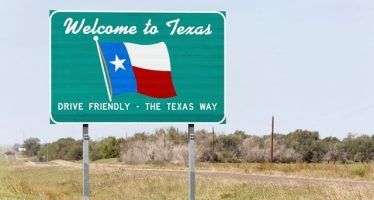Vallejo’s struggles capture CA city perils

 After three years spent in bankruptcy, 2008-11, running the city of Vallejo is still a struggle.
After three years spent in bankruptcy, 2008-11, running the city of Vallejo is still a struggle.
Facing a weakened police force and a failed experiment in citizen-driven budgeting, Vallejo’s structural challenges have persisted. In the wake of the pension crisis that helped plunge the city into bankruptcy, residents have become resistant to spending more money.
Hungry for cash, the City Council has turned its attention to a raft of proposals for big-ticket projects like large new casinos. Meanwhile, law enforcement has attempted to staff up even while suing the city for modifying proposed pension benefits during its bankruptcy proceedings.
All told, this portrait of a precarious, ailing city has cast doubt even on bankruptcy as a reliable fix for the budgetary woes imposed by public pensions — a challenge still unmet across California.
Spending confusion
Vallejo residents have recently encountered several unexpected developments in city budgeting. In a bid to avoid a second bankruptcy, they narrowly voted in a 1 percentage-point increase in the city sales tax in 2011. As CityLab reported, however, concerns mounted that the increased revenues would simply be funneled back into Vallejo’s broken budgetary system.
As a result, Councilwoman Marti Brown advanced a radical notion. Cooked up during Brazil’s 2005 World Social Forum, so-called “participatory budgeting” was designed to give residents a direct say in how budgets were allocated. Over strenuous objections, Brown worked with the Participatory Budgeting Project to squeak their approach through the Vallejo City Council with a 4-3 vote.
That’s when things took an unpredictable turn. As CityLab recounted, residents’ initial skepticism turned to curiosity, and soon citizens had produced some 800 potential budget items. By May 2013, the shortlist of expenditures was ready for a vote. And once it came time to allocate funds for the winners, city council meetings became a hotbed of civic engagement. “For the first time with participatory budgeting, you had a packed room, rooting for the budget,” city manager Dan Keen told CityLab. “They had a stake in the budget that they had imparted.”
The elation, however, was short-lived. The program’s operating costs, reaching $300,000 a year, have been tough for Vallejo to swallow at a time when basic services like law enforcement require more funds. The chunk of Vallejo’s money allocated for participatory budget spending has been cut by two-thirds, down to $1 million. Although increased citizen participation brought a brief wave of city pride, it failed to surmount Vallejo’s structural challenges.
Police drama
Vallejo’s new police chief, Andrew Bidou, came into office with a clear mission: grow. “At its lowest staffing point, the Vallejo Police Department had seen as few as 77 sworn officers on duty, for a city of about 120,000 residents,” the Times-Herald reported. “Bidou said he’s looking to get 110 officers on duty and that the department is on track to meet that number by the end of the year” — up from the current tally of 101.
Though many in Vallejo have strongly supported a return to pre-bankruptcy levels of policing, law enforcement was part of the spending problem that drove Vallejo toward insolvency. Vallejo police refused to negotiate away from their unaffordable pension agreements with the city.
As a result, Vallejo declared an impasse in contract negotiations and unilaterally included police in its $300-a-month cap on medical benefits for retired public employees. That led to a lawsuit brought by police. After a year of legal wrangling, a hearing date has been set for December.
Although the case has yet to progress, the expenses faced by the city could, once again, threaten bankruptcy.
A search for funding
Amid the uncertainty, Vallejo has lurched from budget proposal to budget proposal.
Measure E, a $239 million bond that would have renovated sites throughout the local school district, won 59 percent of the vote on Election Day, but fell short of the two-thirds of votes necessary to make it law. Now the City Council has been confronted with a series of offers for massive casino construction.
In partnership with Native American tribes, not all of which possess reservations, developers have promised thousands of jobs and millions in revenue.
Opponents, however, continued to worry that embracing casinos as a way out of Vallejo’s challenges would be more of a gamble than ever.
It’s a cautionary tale for Stockton and San Bernardino, both of which are working through bankruptcies — and for all California cities.
Related Articles
Second-largest CA firm may be preparing for move to Texas
California could be on the brink of one of its biggest corporate defections yet with the signs that McKesson Corp. –
Referendum advances to repeal bathroom bill
Organized and run by Privacy for All Students, a potential referendum, if approved by California voters, would repeal AB 1266, commonly
VIDEO: Is the pot legalization movement more important than the Tea Party?
California led the way on many fronts, including the legalization of marijuana. Is it time to give pot to needy




